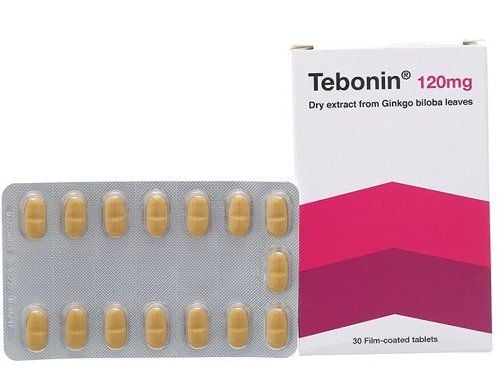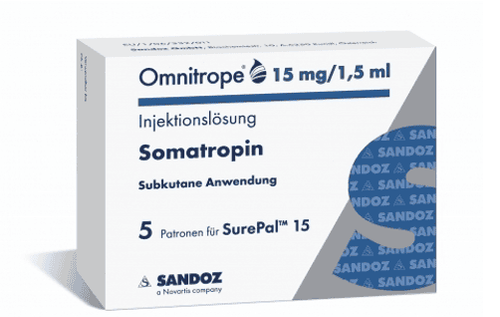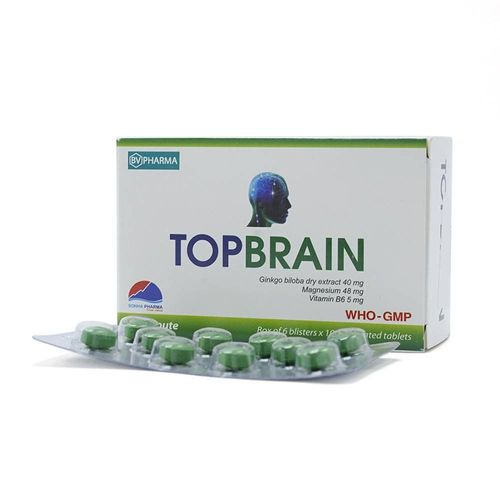This is an automatically translated article.
Memantine is a medicine prescribed by a doctor, patients should not use Memantine in larger / smaller amounts or for longer than prescribed to avoid the risk of experiencing Memantine side effects.
1. What is Memantine 7 mg?
Memantine is a drug that works by blocking the action of a natural substance in the brain - Glutamate, which has been linked to symptoms of Alzheimer's disease. However Memantine is not capable of curing Alzheimer's disease, Memantine master can help patients improve memory, improve cognition and ability to perform daily tasks. Therefore Memantine is indicated for the treatment of moderate to severe dementia (dementia) associated with Alzheimer's disease.
Memantine has many dosage forms with different strengths:
Memantine film-coated tablets: 5mg, 10mg; Memantine extended-release capsules: Memantine 7 mg, 14mg, 21mg, 28mg; Memantine oral suspension 2 mg/ml.
2. Dosage of Memantine
2.1. Dosage of Memantine for Adults with Alzheimer's Memantine Immediate Release:
Week 1: Memantine 5mg, taken once a day. Week 2: Memantine 10mg/day (divided into 5mg orally twice a day). Week 3: orally 15mg/day (5mg and 10mg Memantine doses separately). Week 4: maintenance dose of 20mg/day (10mg of Memantine orally twice a day). Memantine 7 mg extended release:
Starting dose: Memantine HCl 7 mg orally once a day. Each week add 7 mg of Memantine to the starting dose up to a maximum dose of 28 mg of Memantine once a day 2.2. Memantine Dosage for Elderly Patients with Alzheimer's The recommended dose of Memantine for patients over 65 years of age is: 20 mg/day.
2.3. Memantine dosage for patients with renal impairment Patients with mild renal impairment (creatinine clearance 50-80ml/min) do not need to adjust the dose of Memantine ; Moderate impairment of renal function (30 - 49 ml/min): Memantine dose is 10 mg/day, if well tolerated after at least 7 days of treatment, the dose of Memantine can be increased to 20 mg/day; Severe renal impairment (creatinine clearance 5-29 ml/min) dose of Memantine 10 mg/day. 2.4. Memantine dosing recommendations for patients with hepatic impairment Mild to moderate hepatic impairment (Child-Pugh A, Child-Pugh B): no dose adjustment of Memantine is required. The use of Memantine in patients with severe hepatic impairment is not recommended.
3. What should be noted when using Memantine?
Caution is recommended when using Memantine in patients with epilepsy, history of seizures or patients with predisposing factors for epilepsy; Several factors increase urine pH: dietary changes (from a carnivore to a vegetarian diet) or use of an alkaline gastric buffer require careful patient monitoring. In addition, urine pH may increase in the state of renal tubular acidosis or increase due to severe urinary tract infections caused by Proteus bacteria, leading to decreased urinary excretion of Memantine, increased plasma concentrations of Memantine; Memantine should be used with caution in patients with myocardial infarction, decompensated congestive heart failure (NYHA class III-IV), uncontrolled hypertension; Avoid using Memantine at the same time with N-methyl-D-aspartate (NMDA) antagonists: amantadine, ketamine, dextromethorphan ... because these compounds act at the same receptor with Memantine, easily leading to reactions harmful to the central nervous system; There are no data on the risk associated with the use of Memantine in pregnant women, therefore the use of Memantine during pregnancy is not recommended; There are no data on the presence of Memantine in breast milk, so the therapeutic needs of the mother and the potential risks to the infant should be considered before taking Memantine; Use caution when driving or operating machinery while taking Memantine.
4. Memantine side effects
Common side effects of Memantine: Drowsiness, dizziness, headache, increased blood pressure, constipation, shortness of breath, increased values when performing liver function tests, hypersensitivity, impaired ability to ascend plain.
Uncommon side effects of Memantine: Confusion, hallucinations, heart failure, thrombosis or venous thromboembolism, vomiting, fatigue, fungal infection...; Memantine side effects are rare: Convulsions. Memantine side effects of unknown frequency: Pancreatitis, hepatitis, psychotic reactions...
5. Memantine overdose and treatment
Memantine overdose in relatively large amounts (200 mg and 105 mg/day for 3 days) is accompanied by symptoms of fatigue, weakness and/or diarrhea or no symptoms.
If Memantine overdose is less than 140 mg or the dose is unknown, the patient may present with central nervous system symptoms: confusion, somnolence, dizziness, agitation, hallucinations, gait disturbances. and/or vomiting and diarrhea.
In the most severe case of Memantine overdose, the patient survived after taking a total of 2000mg of Memantine with effects on the central nervous system: coma for 10 days, double vision and agitation afterwards...
In one case of oral overdose of 400mg Memantine, the patient had symptoms such as restlessness, mental confusion, visual hallucinations, convulsions, lethargy, stupor, and unconsciousness.
How to handle an overdose of Memantine
Memantine overdose is only symptomatic treatment because there is no specific antidote: gastric lavage, activated charcoal, acidification of urine... If there are signs and symptoms, Symptoms of CNS overstimulation require careful symptomatic treatment. Patients with an overdose of 2000mg Memantine received symptomatic treatment and coagulation to help recover without leaving permanent sequelae.
6. Interaction of Memantine with other drugs
L-dopa, dopaminergic agonists and anticholinergics may potentiate the effects of concomitant treatment with Memantine. The effect of barbiturates and sedatives may be reduced when used with Memantine; Co-administration of Memantine with antispasmodics such as dantrolene, baclofen may change their effect; Avoid concomitant use of Memantine with N-methyl-D-aspartate (NMDA) antagonists such as amantadine, ketamine, dextromethorphan due to the risk of psychosis, patients should be monitored if experiencing symptoms of agitation, dizziness face...; Active substances such as cimetidine, ranitidine, procainamide, quinidine, quinine and nicotine can interact with the drug Memantine leading to the risk of increased drug plasma concentrations; There is a possibility of a decrease in serum hydrochlorothiazide (HCT) concentrations when Memantine is co-administered with HCT; Tafenoquine will increase the concentration of Memantine, if it is necessary to take it, monitor symptoms and consider reducing the dose of the drug used with Memantine. Memantine is a medicine prescribed by a doctor, patients should not use Memantine in larger / smaller amounts or for longer than prescribed to avoid the risk of experiencing Memantine side effects.
Follow Vinmec International General Hospital website to get more health, nutrition and beauty information to protect the health of yourself and your loved ones in your family.
Please dial HOTLINE for more information or register for an appointment HERE. Download MyVinmec app to make appointments faster and to manage your bookings easily.













